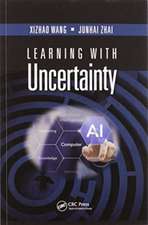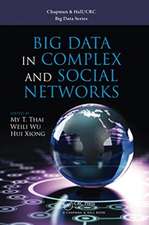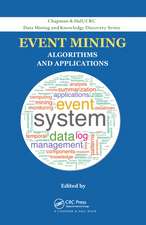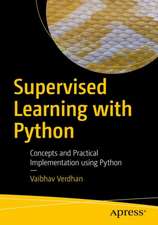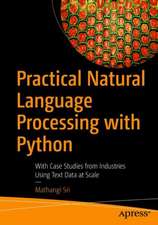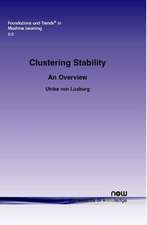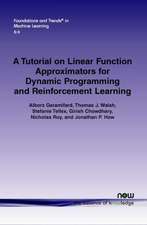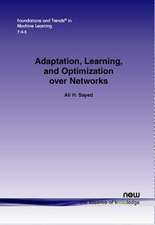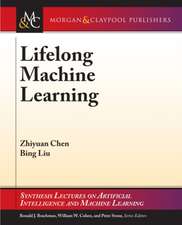Risks of Artificial Intelligence
Editat de Vincent C. Mülleren Limba Engleză Paperback – 30 iun 2020
Featuring contributions from leading experts and thinkers in artificial intelligence, Risks of Artificial Intelligence is the first volume of collected chapters dedicated to examining the risks of AI. The book evaluates predictions of the future of AI, proposes ways to ensure that AI systems will be beneficial to humans, and then critically evaluates such proposals.
The book covers the latest research on the risks and future impacts of AI. It starts with an introduction to the problem of risk and the future of artificial intelligence, followed by a discussion (Armstrong/Sokala/ÓhÉigeartaigh) on how predictions of its future have fared to date.
Omohundro makes the point that even an innocuous artificial agent can easily turn into a serious threat for humans. T. Goertzel explains how to succeed in the design of artificial agents. But will these be a threat for humanity, or a useful tool? Ways to assure beneficial outcomes through ‘machine ethics’ and ‘utility functions’ are discussed by Brundage and Yampolskiy.
B. Goertzel and Potapov/Rodionov propose ‘learning’ and ‘empathy’ as paths towards safer AI while Kornai explains how the impact of AI may be bounded. Sandberg explains the implications of human-like AI via the technique of brain emulation. Dewey discusses strategies to deal with the ‘fast takeoff’ of artificial intelligence and, finally, Bishop explains why there is no need to worry because computers will remain in a state of ‘artificial stupidity’.
Sharing insights from leading thinkers in artificial intelligence, this book provides you with an expert-level perspective of what is on the horizon for AI, whether it will be a threat for humanity, and how we might counteract this threat.
| Toate formatele și edițiile | Preț | Express |
|---|---|---|
| Paperback (1) | 423.58 lei 6-8 săpt. | |
| CRC Press – 30 iun 2020 | 423.58 lei 6-8 săpt. | |
| Hardback (1) | 949.75 lei 6-8 săpt. | |
| CRC Press – 10 dec 2015 | 949.75 lei 6-8 săpt. |
Preț: 423.58 lei
Nou
Puncte Express: 635
Preț estimativ în valută:
81.08€ • 88.10$ • 68.15£
81.08€ • 88.10$ • 68.15£
Carte tipărită la comandă
Livrare economică 22 aprilie-06 mai
Preluare comenzi: 021 569.72.76
Specificații
ISBN-13: 9780367575182
ISBN-10: 0367575183
Pagini: 302
Dimensiuni: 156 x 234 x 20 mm
Greutate: 0.48 kg
Ediția:1
Editura: CRC Press
Colecția Chapman and Hall/CRC
ISBN-10: 0367575183
Pagini: 302
Dimensiuni: 156 x 234 x 20 mm
Greutate: 0.48 kg
Ediția:1
Editura: CRC Press
Colecția Chapman and Hall/CRC
Cuprins
Editorial: Risks of Artificial Intelligence. Autonomous Technology and the Greater Human Good. Errors, Insights, and Lessons of Famous Artificial Intelligence Predictions. Path to More General Artificial Intelligence. Limitations and Risks of Machine Ethics. Utility Function Security in Artificially Intelligent Agents. Goal-Oriented Learning Meta-Architecture. Universal Empathy and Ethical Bias for Artificial General Intelligence. Bounding the Impact of Artificial General Intelligence. Ethics of Brain Emulations. Long-Term Strategies for Ending Existential Risk from Fast Takeoff. Singularity, or How I Learned to Stop Worrying and Love Artificial Intelligence.
Notă biografică
Vincent C. Müller’s research focuses on the nature and future of computational systems, particularly on the prospects and dangers of artificial intelligence. He is the president of the European Association for Cognitive Systems and was the coordinator of the European Network for Cognitive Systems, Robotics and Interaction, which has nearly 1000 members and is funded by the European Commission through two FP7 projects worth €3.9 million over 2009–2014 (www.eucognition.org). He organizes a conference series, Theory and Philosophy of AI (www.pt-ai.org), and is the principal investigator of a European Commission–funded research project Digital DIY. He is currently working as professor of philosophy, Division of Humanities & Social Sciences, Anatolia College/ACT, Pylaia-Thessaloniki, Greece.
Descriere
Featuring contributions from leading experts and thinkers in the theory of artificial intelligence (AI), this is one of the first books dedicated to examining the risks of AI. The book evaluates predictions of the future of AI, proposes ways to ensure that AI systems will be beneficial to humans, and then critically evaluates such proposals. The







